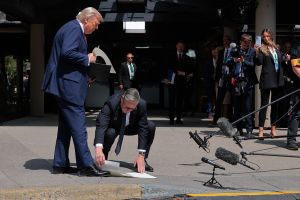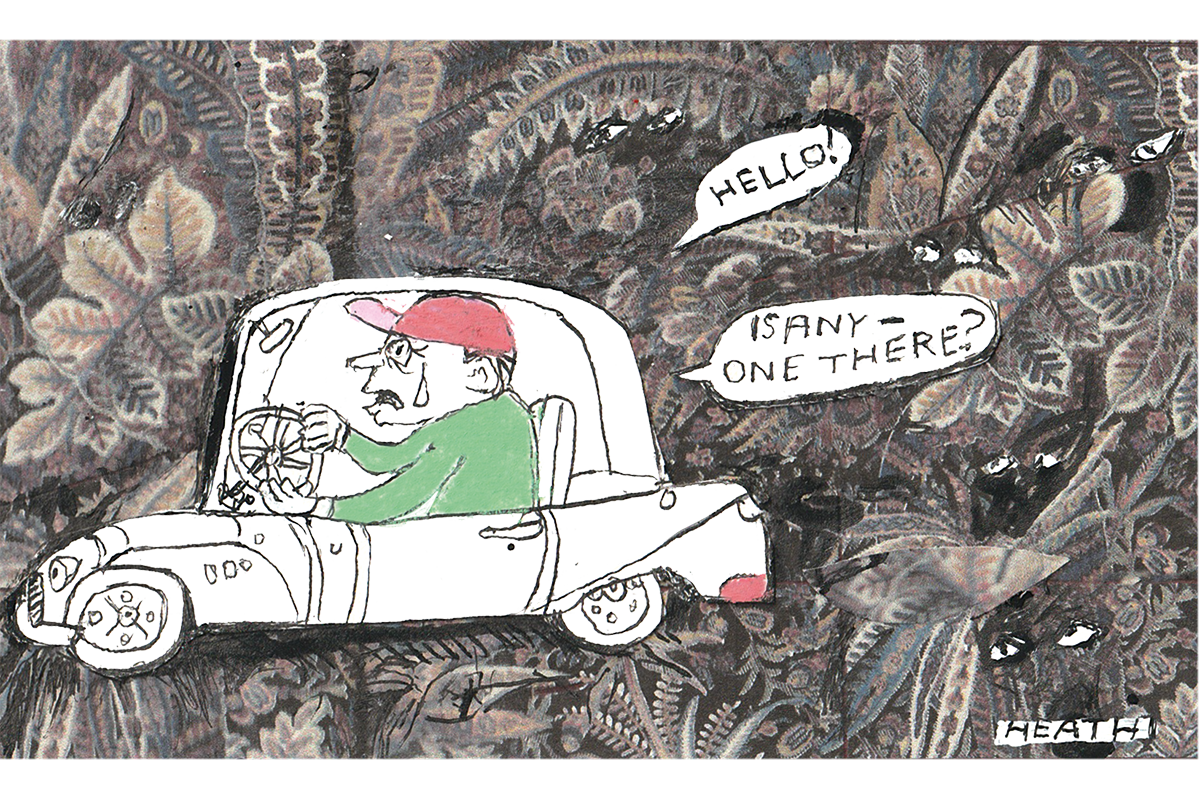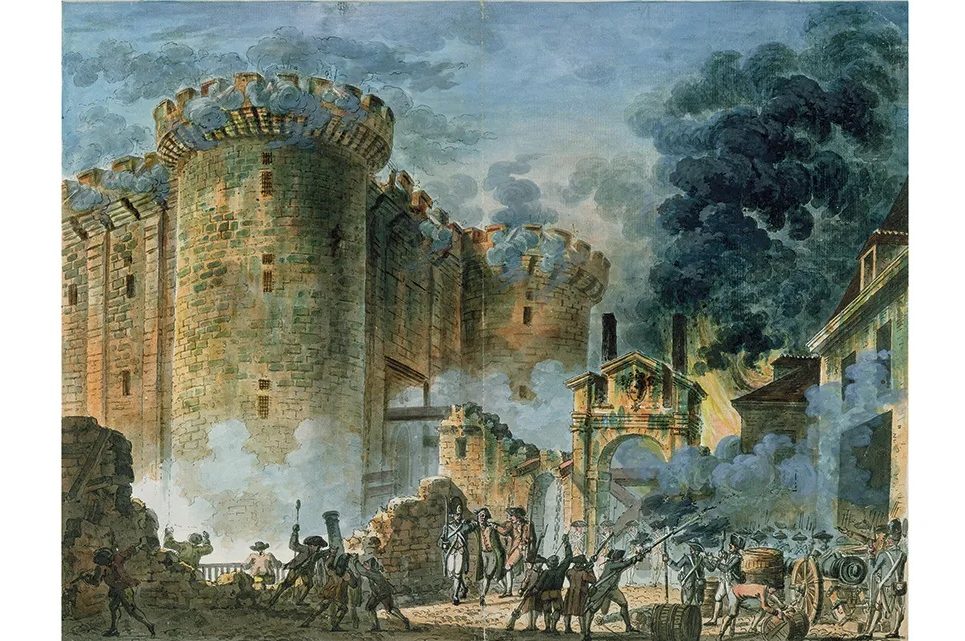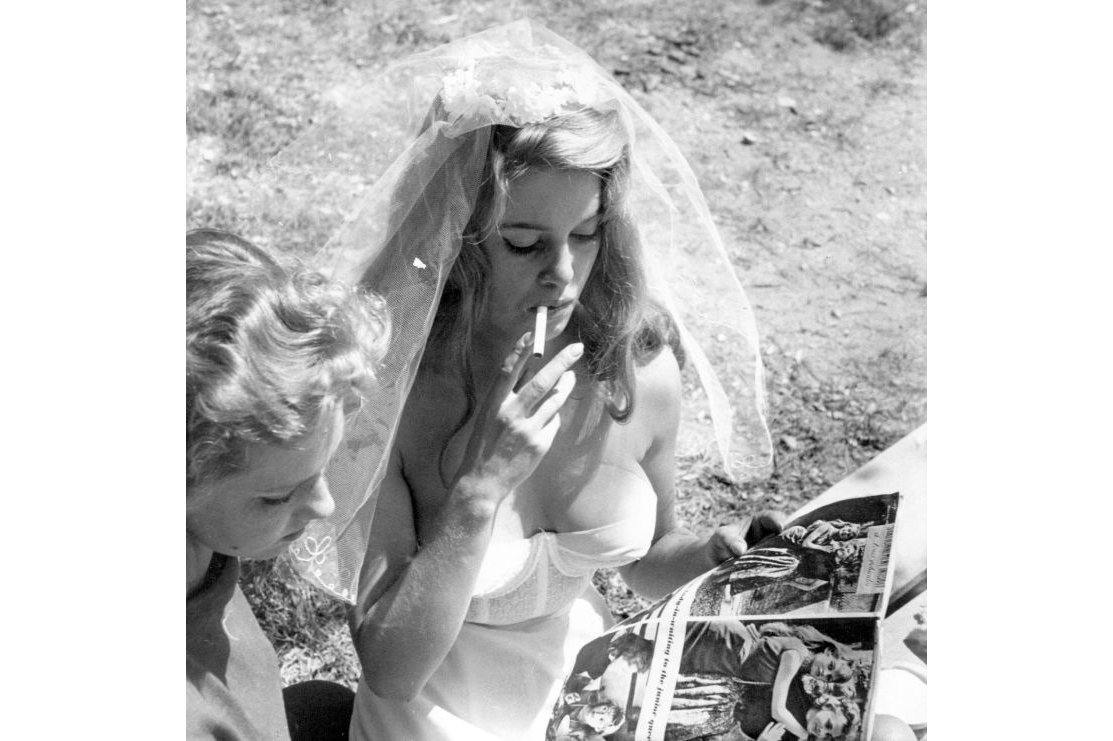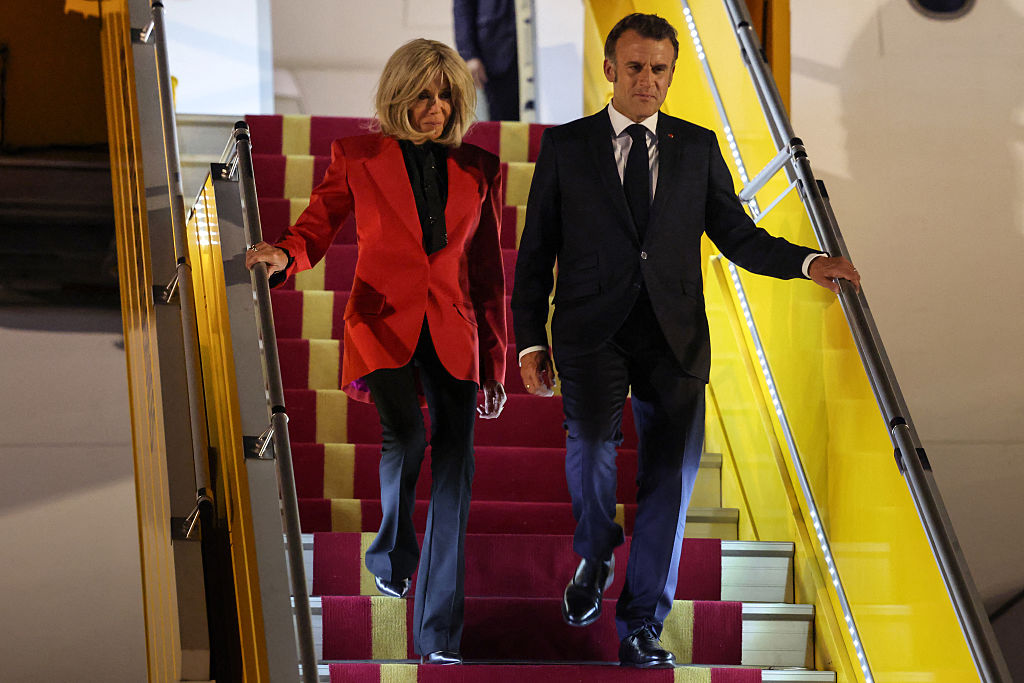“If you wish to meet intellectual frauds in quantity,” V.S. Naipaul once said, “go to Paris.” After two years of pandemic-induced shutdowns and travel bans — some of them instituted, it seemed at times, with the sole purpose of harrying visitors from Britain — it was oddly satisfying, rather than irritating, to be assailed once again by the sciolistic outpourings of aspiring novelists.
On mild spring evenings, the Left Bank echoed with the chatter of students and veterans of the creative writing mills of North America. Paris, finally, was emerging from the thickets of depression and terror occasioned by disease, ennui and patrols of gendarmes hunting for delinquents out for a walk. The Champs-Élysées and Boulevard Haussmann surged with tourists luxuriating in consumerist abundance.
A short distance away, on Boulevard des Capucines, the Kimpton St Honoré was emblematic of the city’s recovery. The hotel’s ornate turquoise facade, heavy marble panels and copper and wrought-iron balconies radiated the charm and elegance of belle époque Paris. Repurposed at great expense from a revered Art Nouveau building designed in 1914 by the fabled Belgian architect Frantz Jourdain, it was inaugurated three years ago as a downtown haven for the chic traveler. For two years, it lay mostly empty — a tragically opulent casualty of the pandemic in a city that admires beauty. Now, it was overflowing with overseas guests draped in designer outfits.
Old money parked itself at Le Bristol on Rue du Faubourg Saint-Honoré, the nucleus of Parisian power and affluence. Its name pays homage to the 4th Earl of Bristol, Frederick Augustus Hervey, a public-spirited prelate who attained notoriety as an insatiable craver of luxury in private life. The first hotel to receive the designation of a “palace,” it is several rungs above a five-star hotel. From its furnishings to facilities — a covered rooftop pool, many magnificent salons, two restaurants sharing four Michelin stars between them — Le Bristol is the ne plus ultra of Parisian grandeur.
When I’d first traveled to Paris as a student during the reign of Nicolas Sarkozy, no one I met knew the meaning of “vegetarian.” I was served boiled potatoes at one smart restaurant and had ice cream for supper at another. Le Bristol now had an extensive vegan menu. “This is very civilized,” I said to the maître d’. “Very accommodating,” he answered with a cheerful smile.
On the lawn that evening, I espied a corpulent man in his fifties counseling a twenty-four-year-old brunette. “I can go back to Moscow anytime, but I don’t want to go back,” she said plaintively at one point, holding a slender cigarette between her bony fingers. “I want my own apartment in Paris. I want to make a life here.” “I can help you with that,” the man replied reassuringly. “You can’t depend on your boyfriend. With me, you have options.” Three days after I spotted them, Russia invaded Ukraine. Her options, such as they were, dwindled to zero.
A few blocks from Le Bristol, diplomatic soirées had resumed on the embassy row adjoining the Élysée Palace. The Parisian haut monde exchanged gossip late into the night about war, peace and politics with tuxedoed foreign envoys and their staff. At a reception I attended, “le wokisme” was denounced as an unacceptable American disease, and Marine Le Pen — whom I had interviewed a few days before — was pronounced “dead.” Almost everyone appeared convinced that Éric Zemmour, despite sinking in the polls, was poised to beat Le Pen in the first round of the presidential elections. “Not fair at all,” a silver-haired grandee replied when I asked if it was fair to compare Zemmour to Donald Trump. “Éric Zemmour has written books. He is an intellectual.” Another guest remarked in earnest that Emmanuel Macron deserved a Nobel Prize for convincing “Poutine” to pull back. This was two nights before Putin launched the war.
After a while, I fell into a conversation with a preppy young American from the East Coast who was attending the party with a family connection. What had brought him to Paris, I asked. Shy at first, he opened up quickly. “I am working on a novel,” he said. “This city really inspires you to write.” Every conceivable cliché about Paris was contained in that room. And after all that the city had endured, it felt perfectly agreeable.
Kapil Komireddi was a guest of Kimpton St Honoré, Paris, and Le Bristol, Paris. This article was originally published in The Spectator’s June 2022 World edition.











